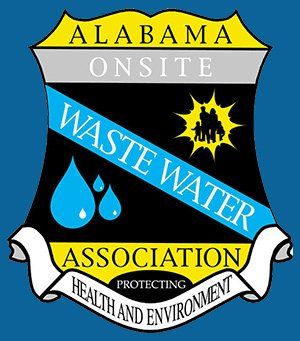Types of Septic Tank Systems for Your Home
- By Kristian Maniclang
- •
- 26 Dec, 2022
- •
A septic system consists of components located underground that use natural techniques to treat wastewater. Usually, the septic tank will be located below your yard. However, many types of septic tank systems exist. Here are the main septic systems for your home.
1. Conventional System
Conventional septic systems are a popular feature in small business locations or single-family homes. These systems' design means they can't handle wastewater from multiple homes.
The conventional system will include a septic tank, a fabric layer, and an underground infiltration system. Sometimes, conventional septic tanks may have a gravel-filled drain field instead of an infiltration system.
Oxygen will occupy the spaces between the gravel and allow the thriving of aerobic bacteria. The spaces between the gravel also store effluent temporarily.
2. Chamber System
The use of gravel in conventional septic systems has a few disadvantages. First, the gravel must be clean to avoid clogging the surrounding soil. In addition, the voids between the gravel don't offer enough storage for the waste. The chamber system solves these problems by substituting the gravel with cut pipes.
The pipes are in half lengthwise and include slits in the sides to support the movement of effluent. Using pipes offers a larger storage area for effluent. Moreover, you can easily control effluent quality because you know what goes in and comes out of your septic system. The only downside to chamber septic systems is that they are more costly than conventional systems.
3. Aerobic Treatment Systems
Aerobic treatment systems typically function as secondary wastewater treatment areas after the wastewater has passed through a different filter. The different filter removes contaminants and other larger particles from the wastewater.
Then, the aerobic wastewater treatment system uses biological methods to break down and get rid of organic contaminants in the wastewater. These septic systems are common in municipal, oil and gas, beverage, and chemical manufacturing industries.
Aerobic septic systems have protozoa, specialty microbes, and bacteria that feed on oxygen and clean water. The bacteria will use the natural processes of microbial decomposition to filter wastewater. The efficiency of aerobic systems is measured in terms of oxygen demand. The higher the level of oxygen demand, the higher the concentration of biodegradable materials in the wastewater.
4. Drip Distribution System
The drip distribution system is a septic system that distributes wastewater via a network of tubes with emitters. The tubes will be at various depths beneath the ground. Drip distribution systems generally consist of a drip distribution field, filtering device, flow metering device, pump tank, and pre-treatment device.
The system also includes control devices that manage the dosing of the drip fields. The pump tank is where the wastewater will stay until dosing. The control systems will then allow the effluent to pass through the drip distribution field at specific intervals.
Other systems use a demand-dosing mechanism where a manual filter and field flashing controls the dosing.
5. Sand Filter
All the systems listed above require sufficient soil for proper wastewater filtration. If you live in an area with insufficient soil, you can choose the sand filter septic system. The system consists of a drain field, pump chamber, sand filter, and septic tank.
The system will also have a large concrete box full of sand to substitute for the insufficient soil.
The sand filter connects to multiple pipes that pass through the sand. Once the septic tank has treated the wastewater, the pipes will discharge the effluent throughout the sandbed under low pressure.
All septic systems require proper maintenance and installation to function properly. But only a professional can properly maintain and take care of your septic system. And that is what you will get when you work with Allen's Septic Tank Service.
We offer multiple septic tank services, including septic tank installation and maintenance. Contact us for more information.Are you experiencing a sewage backup, slow drainage, or a pungent smell around the drain field? Perhaps the grass around your septic drain field is more lush and green than the rest of the yard. If you've noticed any of these signs, you might need to pump your septic tank.
To avoid hazardous and expensive septic system failures, pump your septic tank regularly. For homeowners, a septic tank pump job should happen every three to five years. However, this time frame will depend on the tank size and the number of occupants in the household.
From cost savings to better health, septic tank pump-outs offer numerous benefits. This guide enlightens you on the benefits of septic tank pumping.
Prevent Damage
Failure to pump the septic tank can result in mechanical and physical damage to the system. For instance, the waste could overwhelm and crack the outlet and inlet pipes if the excess sludge is not removed. Also, the excess waste could block the septic system and cause sewage back-ups in your sinks, toilets, and bathtubs. You will pay so much more to fix these issues than you'd have paid to empty the tank.
Regular pump-outs will prevent overfill, clogs, and blockages in the septic system. Also, the pump jobs will not only improve your system's overall efficiency but will also help to avoid extensive system damage.
Protect Your Family
The level of care you provide to your septic tank will correspond to the health of your household and surrounding environment. A brimming septic tank creates a health hazard to your household, neighbors, and even animals. For instance, sewage backup in your home or groundwater contamination can cause bacterial or viral diseases like typhoid, cholera, and rotavirus.
Also, if the septic tank is full, gas will build up in the chamber to produce dangerous fumes with ammonia, hydrogen sulfide, nitrogen dioxide, and carbon monoxide. The pungent smells produced aren't only unpleasant but also hazardous. These fumes can be poisonous even in small concentrations to cause shortness of breath, eye irritation, and worsened asthma symptoms. In high concentrations, the fumes can cause organ damage and even death.
To keep your loved ones and neighbors safe, make sure to pump your septic tank at the right time. If you're not sure, contact a septic tank contractor who will conduct an inspection and advise whether you need to get the septic tank pumped.
Protect Your Property
An overfilled or clogged septic tank can wreak havoc in your home. If the wastewater and sludge flood your yard or house, you can incur costly property damages. To avoid these issues and protect your property, empty your septic tank regularly.
Save Money
Overfull septic tanks can easily lead to system malfunctions or failure. In such cases, some septic system components may be faulty and require repair or replacement. If the damage is extensive, the whole system may need a replacement and cost you thousands of dollars.
Also, since an overfilled septic tank will cause damage to other structures such as your landscaping and home, the repair costs might be astronomical. And don't forget the medical expenses if you or your family member falls sick due to the health hazard presented by an overflowing septic system.
Avoid all these expenses through regular pump jobs of your septic tank. While septic tank pump-out will cost you money, you avoid a lot of issues to save in the long run. Also, you only need to empty your septic tank once every few years. Proper maintenance is key for optimal functioning and avoiding costly damages to your septic system.
Regular septic pumps can help prevent damage, prolong the system's lifespan, and improve performance. If you need any septic system services, Allen Turner Septic Tank Service can help.

